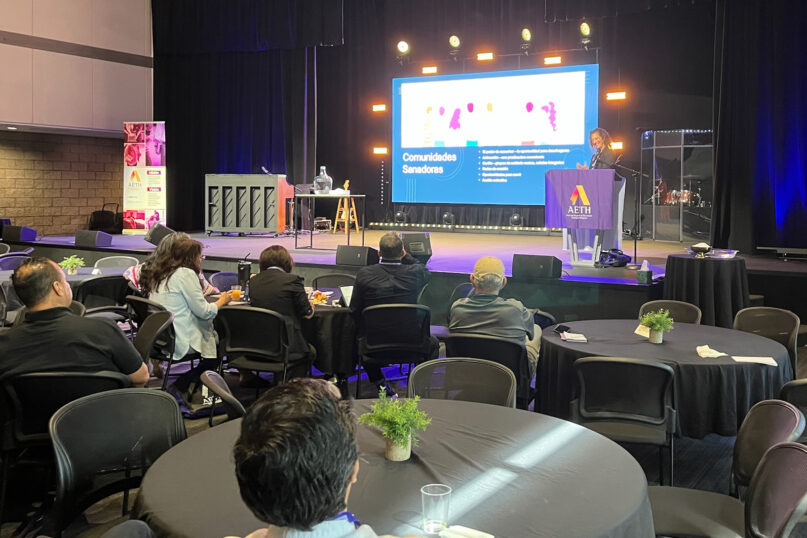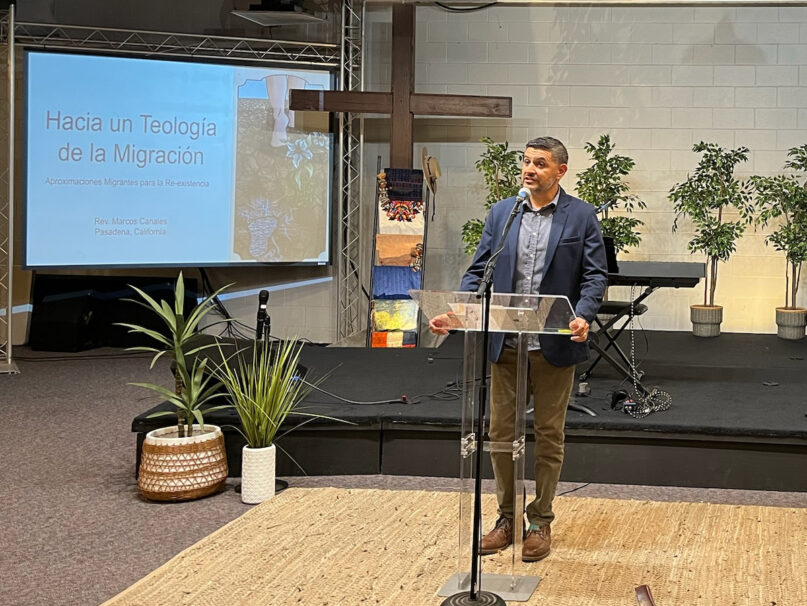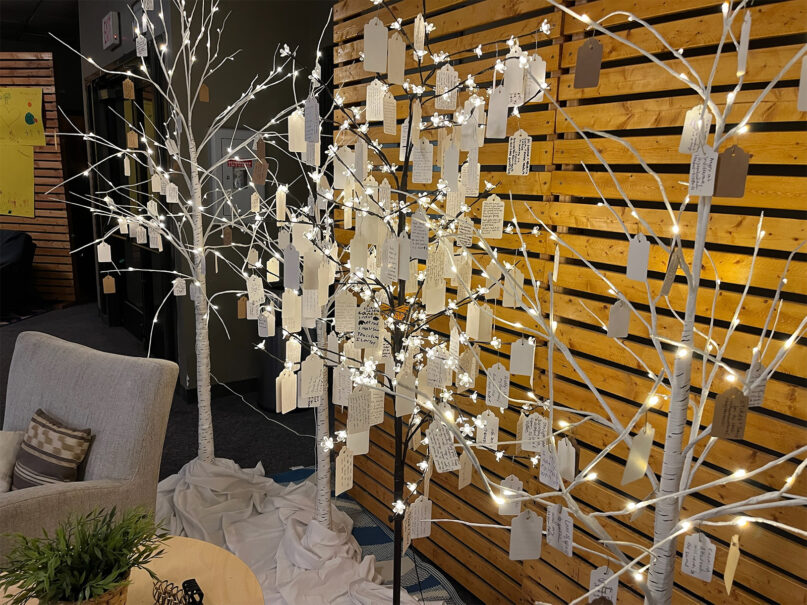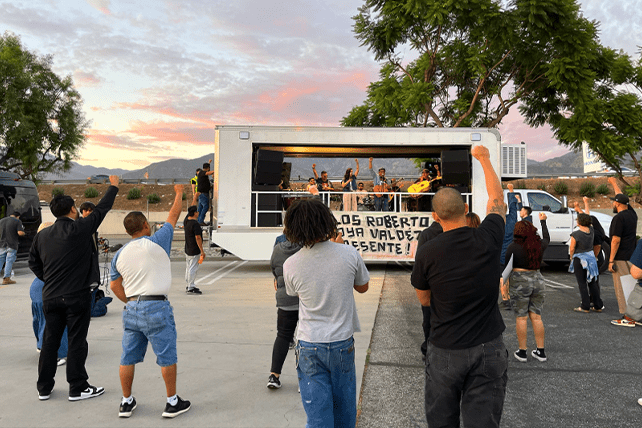She stressed the importance of not giving false promises of instantaneous change from devotion to Christ, as some preachers do, Tinoco Ruiz said. “Healing can take time, and sometimes it requires more than prayer.”

The Rev. Alexia Salvatierra speaks to the Asociación para la Educación Teológica Hispana, Oct. 10, 2025, at Life Pacific University in San Dimas, Calif. (RNS photo/Aleja Hertzler-McCain)
In a workshop on trauma and immigration, the Rev. Alexia Salvatierra, academic dean of Fuller Theological Seminary’s Centro Latino, said acknowledging the trauma of migration is crucial, saying in Spanish, “A lot of the time, undocumented people feel so much shame that they do not bring their migration situations to prayer networks.
“We need to give permission in sermons for them to do that, so that they know that there is no shame in breaking an unjust law,” Salvatierra said. “It is very important to remove the shame and speak about the grace of God. Every person makes mistakes and commits sins.”
Salvatierra advised churches to give threatened immigrants opportunities to participate in collective action and to take on responsibility. “We have to combat the feeling owhof being without power, without hope, without support. One essential way to combat this is the experience of agency, the experience of being an agent of God.”
An idea of what this may look like was presented at an Oct. 8 meeting of the Los Angeles chapter of the Fraternidad Teológica Latinoamericana (Latin American Theological Fraternity) held at La Fuente Ministries, a bilingual faith community in Pasadena. La Fuente maintains a fund for congregants who have experienced income disruption due to fear of ICE raids and for application fees for congregants working to adjust their immigration status. Church volunteers are also bringing groceries to people who are too afraid to leave their houses, the pastors said.

The Rev. Marcos Canales speaks during a meeting of the Los Angeles chapter of the Fraternidad Teológica Latinoamericana at La Fuente Ministries, Oct. 8, 2025, in Pasadena, Calif. (RNS photo/Aleja Hertzler-McCain)
The church has also worked with the Clergy Community Coalition, a local faith-based organization, to plan family preparedness sessions, where families discuss what to do in case of a detention or deportation, and to participate in a rapid response network that addresses ICE activity.
“Our community, La Fuente Ministries, is navigating the devastating season of fire and ICE,” said the Rev. Marcos Canales, the community’s pastor, pointing to three people in the congregation who lost their homes in the Eaton Fire. Many others were evacuated or displaced, said Canales.
The fire, followed by immigration raids, he told Religion News Service, is “a double collective trauma.”
Canales’ wife, Andrea, a clinical psychologist, led the congregation in creating 12 stations of grief in the church, including art projects, a map showing the destruction, candles for community members detained by ICE and white trees where congregants hung white tags with some of their losses of the year.
Canales said that at La Fuente, preaching a theology of migration where “God the migrant relates to the migrant people of God” is an important part of Sunday morning.

Tags with personal losses are hung from trees in a grief station at La Fuente Ministries, Oct. 8, 2025, in Pasadena, Calif. (RNS photo/Aleja Hertzler-McCain)

